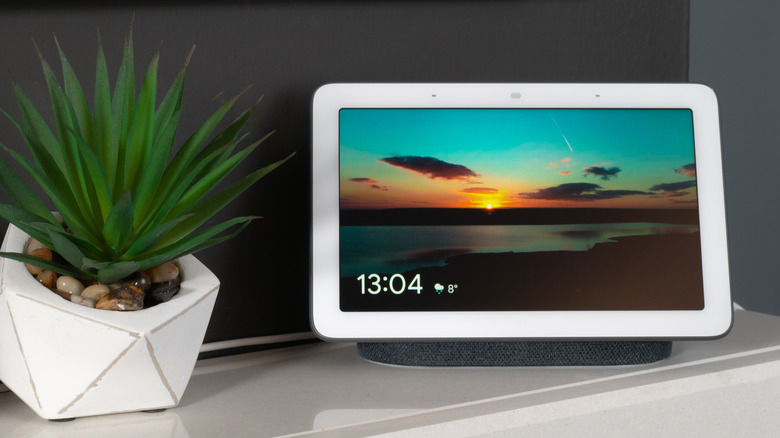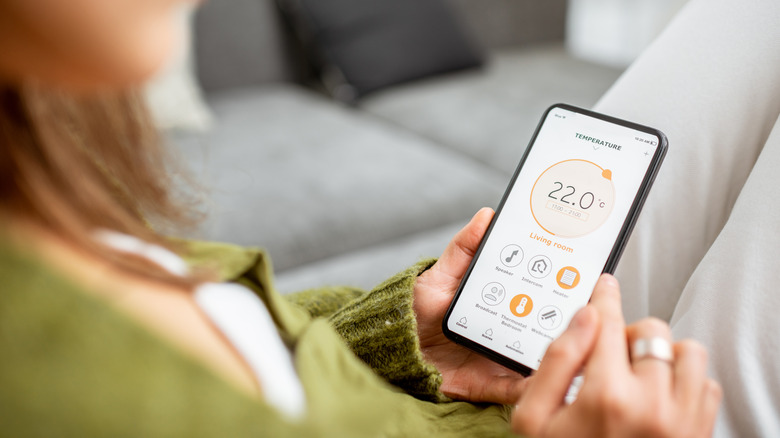Google's Matter Upgrade Just Hit Android And Nest: Why That's Huge
The smart home wasn't always so easy to manage. In the earliest days, those riding the wave of connected homes dealt with a hodgepodge of proprietary communication protocols. This meant you had to get very specific about the products you bought because they only worked with one other very specific product. Wanted another? You needed more devices, more hubs, more logins, and more everything. It was a confusing mess, to say the least.
Fast forward to today, and things have gotten much better. Companies are working together to ensure their products can communicate with others without much tinkering on the users' end. Hubs have become multifunctional, allowing you to operate multiple products from a central device, even if you bought them from different manufacturers. And all it takes for the user to set this up in most cases now is to log into their account and click a few buttons.
Matter is the latest technology promising to strengthen this convoluted web even further, and Google has just announced the first of its devices to enter the new age. Both Nest and Android-based devices now support Matter. While Matter requires a hub to operate a full network of supported devices, you can use any device that you'd like, as long as it can double as a Matter hub. For Google, that now includes Google Home speaker, Google Home Mini, Nest Mini, Nest Audio, Nest Hub (1st and 2nd gen), Nest Hub Max, and the new Nest Wifi Pro.
How Matter will change the smart home forever
Matter is a standard protocol that more than 300 companies have agreed to support as part of the Connectivity Standards Alliance. While it's still in its infancy, Matter promises to make communications seamless between devices, no matter who you bought them from — no pun intended. For instance, your Nest thermostat will be controllable by the same hub that controls your smart lights, and they could theoretically speak to each other, too.
Technology like this requires broad, ubiquitous support. Thankfully, the CSA's governing council comprises most of the major players making these types of devices, including Google, Amazon, Apple, LG, Samsung, ARM, and Texas Instruments. Its list of willing participants runs deep, with nearly every major player in the technology industry included in the exhaustive roster.
This is the same alliance that pushes Zigbee, another widely adopted inter-connective protocol used by many of today's networking and smart home devices. Matter is the next evolution of it, promising the all-encompassing solution that aims to eliminate smart home devices' wonky setup conditions that scare away all but the most seasoned tech enthusiasts.
While it's still early for Matter, 2023 is expected to be a big year, with many existing devices receiving updates and newer devices hitting the market with support out of the box. It'll be a gradual snowball from there, with devices that'll simply work faster, better, and easier as time moves on, all without added effort on your part.

